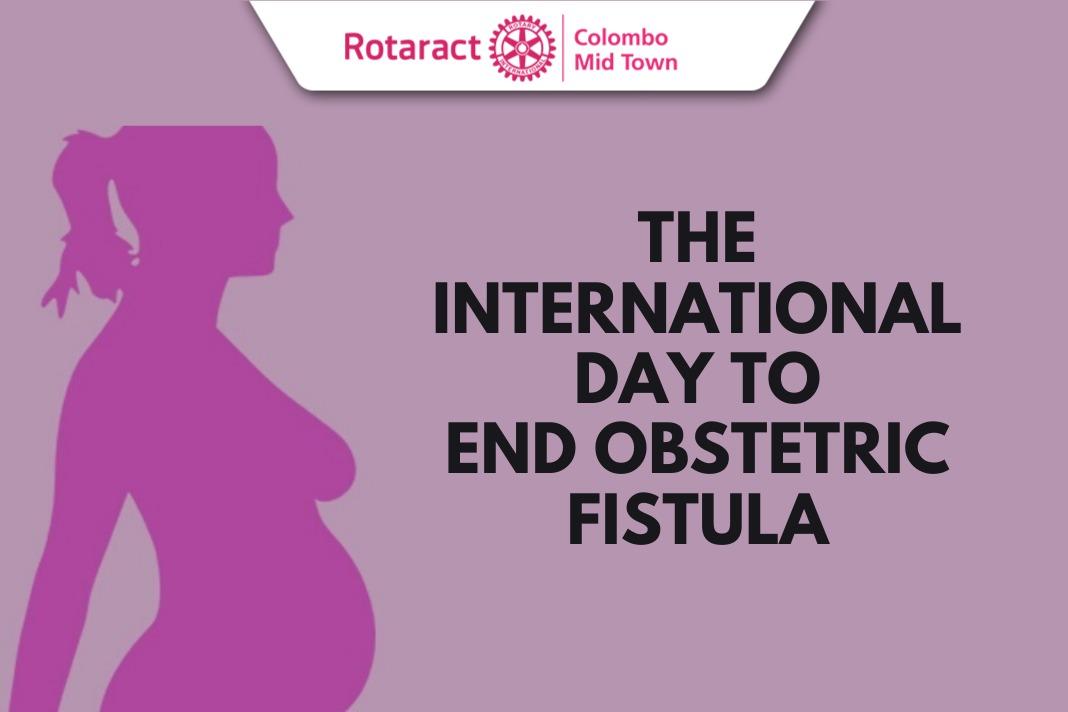Maternal health refers to the health of women during pregnancy, childbirth and the postnatal period. Although important progress has been made in the last two decades, about 295 000 women died during and following pregnancy and childbirth in 2017.This number is unacceptably high. Most maternal deaths are preventable with early management by a skilled health professional working in a supportive environment. Obstetric fistulas are directly related with one of the major causes of maternal mortality, obstructed labour.
According to United Nations Population Fund, an estimated 2 million women in Asia and sub-Saharan Africa live with untreated obstetric fistula. Yet most of us aren’t aware of this. Obs Fistula, abnormal opening between a woman’s genital tract and her urinary tract or rectum, is one of the most serious and devastating complication during child birth. The condition typically leaves women incontinent, as well as she might be infected or may suffer from other physical and psychological issues.
The United Nations declared the International Day to End Obstetric Fistula since 2013. This day, 23 May, is meant to spread the awareness about this issue and gain support around the globe. This year’s Observance speaks up a clear message: “End gender inequality! End health inequities! End Fistula now!” Women and girls at risk of living with fistula face structural and systemic barriers to maternal care and often ignored by the society. It can largely be avoided by postponing the age of first pregnancy; the cessation of harmful unprotected traditional practices; and timely access to obstetric care.
Even though, in Sri Lanka the prevalence of this is almost no existent due to 99% of hospital based delivery and comprehensive obstetric services, the current pandemic hampers all these preventive measures in Sri Lanka as well as in other developing countries where obstetric fistula still prevails due to health care systems, even before the coronavirus outbreak, which failed to provide accessible, quality maternal health care. As the virus advances in these countries, health scare provision become overloaded, or provide a limited services that women need. Many women and girls also skip important medical check-ups for fear of contracting the virus.
Due these prevailing pandemic issues, obstetric preventive measures are in danger, now more than ever, it is important to call on the international community to use the International Day to End Obstetric Fistula to significantly create awareness and formulate actions towards ending obstetric fistula, by the provision of universal quality maternal health care services, including an adequate numbers of competent midwives and fistula surgeons to attend the woman already affected, should be a priority as well as urging post-surgery follow-up and tracking of fistula patients. Fistula prevention, treatment and follow-up services should be given high attention during this pandemic.
In response to the impact of COVID 19 on maternal health services (as health resources get diverted and maternity units shut down), UNFPA, the United Nations sexual and reproductive health agency, are dedicating themselves with its programs in protecting the maternal health workforce, providing safe and effective maternity care and maintaining and protecting the maternal health systems. We can do our part by sharing the information and spreading awareness about it. Ask your friends or your neighbour whether they have any idea about it. The chances are highly unlike to know about it. Tell them, Share your wisdom and soon we will educate our whole society.
By Rtr. P.Krishanth | Email: krishanthprementhiraraja@yahoo.com



